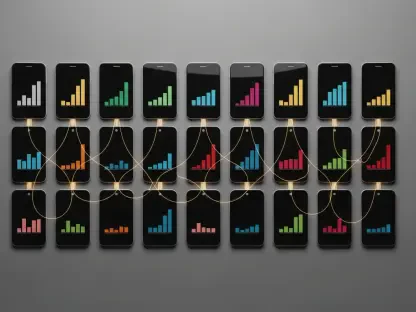Artificial intelligence (AI) is revolutionizing healthcare marketing practices, paving the way for more effective and personalized patient outreach strategies. The integration of AI into healthcare marketing has made it possible for providers to connect with patients in ways that were previously unimaginable, leveraging data to make every interaction meaningful. This shift towards data-driven approaches enables healthcare providers to anticipate patient needs and deliver highly relevant communications, which in turn, fosters stronger relationships and better health outcomes. The application of AI in healthcare marketing is not just a trend; it represents a significant advancement in how healthcare providers attract and retain patients.
Improving Outreach Efficiency with AI
The integration of AI in healthcare marketing has significantly transformed the efficiency and effectiveness of outreach efforts. By leveraging advanced data analytics and predictive modeling, healthcare providers can now anticipate patient needs and interests more accurately. This allows for timely and relevant communication, ultimately fostering stronger patient-provider relationships.
AI marketing automation optimizes various marketing tasks such as patient segmentation, automated communication flows, and generating actionable insights from patient data. These tools help ensure that marketing efforts are more targeted and effective, saving time and resources for healthcare staff. This automation enables healthcare professionals to concentrate on high-impact areas like direct patient care.
AI-driven marketing also excels at analyzing vast amounts of data quickly, providing insights that manual processes simply cannot match. For instance, AI algorithms can rapidly identify patterns and trends within patient data, allowing healthcare providers to tailor their outreach strategies accordingly. This level of precision ensures that marketing communications are not only timely but also resonate with patients on a personal level. By automating repetitive tasks like email campaigns and patient follow-ups, AI frees up valuable time for healthcare staff, allowing them to focus on improving patient care and driving better health outcomes.
Enhancing Patient Acquisition through AI
One of the main challenges for healthcare providers is effective patient acquisition, which AI-driven outreach addresses efficiently. By analyzing demographic, psychographic, and behavioral data, AI identifies potential patient populations with greater precision. This granular approach allows for crafting highly personalized messages that cater to specific healthcare concerns or interests.
Moreover, AI-driven outreach extends beyond traditional methods to include platforms like social media, search engines, and personalized content on provider websites. This multi-channel presence ensures that healthcare providers remain visible and relevant to potential patients.
AI-powered tools also enable healthcare providers to engage with patients through dynamic, interactive content that fosters greater engagement. By using AI to analyze patient behavior and feedback, providers can continually refine their messaging strategies to better meet the needs and preferences of their target audiences. This iterative approach not only improves patient acquisition rates but also enhances overall satisfaction and loyalty.
In addition, leveraging AI in patient acquisition strategies equips healthcare organizations with the ability to predict future trends, monitor campaign performance in real time, and make data-driven adjustments as needed. This level of insight and flexibility is invaluable in a rapidly evolving healthcare landscape.
Personalized Patient Communication
The importance of personalized patient communication is emphasized in the article, where AI technology plays a central role. AI enables providers to tailor interactions based on past behaviors, preferences, and sentiment analysis. This level of personalization increases patient engagement and satisfaction as individuals feel valued and understood.
AI also enhances operational efficiency by automating tasks such as appointment scheduling and reminders, leading to improved compliance and reduced no-shows. This, in turn, optimizes clinic operations and supports timely follow-ups, encouraging rescheduling.
Through the use of AI, healthcare providers can craft messages that speak directly to individual patient concerns, creating a sense of personalized care that strengthens the patient-provider relationship. This degree of tailored communication not only boosts patients’ trust but also enhances their overall experience with healthcare services. By analyzing patient interactions and feedback, AI systems can continually refine and improve the communication strategies employed, ensuring that they remain current and effective.
Beyond improving communication, AI also plays a crucial role in streamlining appointment management and follow-up processes. Automated reminders and scheduling adjustments help ensure that patients do not miss appointments, reducing the likelihood of gaps in care and improving overall patient outcomes.
Continuous Evolution of Patient Communication
Patient communication must evolve to remain effective, and AI assists in maintaining relevance by gathering interaction data to determine the most compelling content and offers. This continuous optimization ensures patient communications are engaging and never become stale.
AI-powered systems collect and analyze vast amounts of data from various interactions with patients, enabling healthcare providers to continuously refine their communication strategies. By staying responsive to changing patient needs and preferences, healthcare organizations can ensure their outreach efforts remain relevant and impactful. This adaptability is critical in today’s dynamic healthcare environment, where patient expectations are constantly evolving.
In addition to optimizing content, AI also helps providers identify the most effective communication channels for reaching their target audiences. By evaluating the performance of different outreach strategies, AI systems can recommend the best approaches for engaging with patients across various platforms. This comprehensive analysis ensures that healthcare providers can maximize the impact of their marketing campaigns and deliver messages that resonate with their patients.
As patient communication continues to evolve, AI will play an increasingly central role in helping healthcare providers stay ahead of the curve. The ability to continually adapt and refine outreach strategies based on real-time data insights is a powerful advantage that can significantly enhance patient engagement and satisfaction.
Measuring Campaign Success with AI Analytics
Artificial intelligence (AI) is transforming healthcare marketing practices, enabling more effective and personalized patient outreach. The incorporation of AI into healthcare marketing allows providers to connect with patients in ways that were previously unthinkable, using data to ensure every interaction counts. This data-driven approach enables healthcare providers to predict patient needs and deliver highly tailored communications, fostering stronger relationships and improving health outcomes. The application of AI in this field is not merely a trend but a significant advancement in how healthcare providers attract and retain patients. By analyzing vast amounts of data, AI can identify patterns and provide insights that human analysts might miss, helping healthcare organizations to optimize their marketing strategies. This leads to better-targeted campaigns, increased patient engagement, and ultimately, improved patient satisfaction and loyalty. The use of AI thus represents a pivotal development in the evolution of healthcare marketing, driving innovation and enhancing the overall quality of care.









